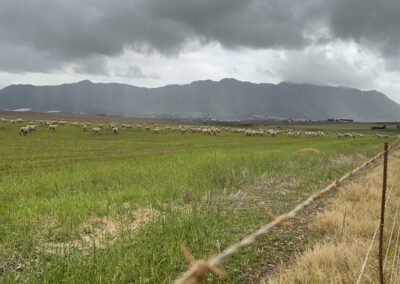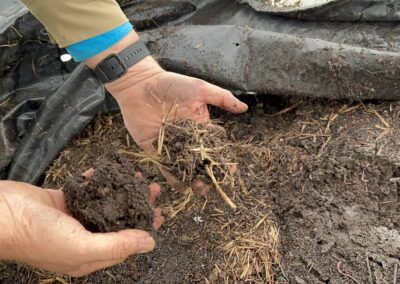26 February 2024
by Franz Rentel, Managing Director – South Africa
Last week the Minister of Finance, Enoch Godongwana, delivered the 2024 Budget Speech which contained a number of important announcements around the South African carbon tax.
Here are some of the highlights:
Carbon tax:
- The carbon tax will increase from R159 to R190 per tonne of CO2 equivalent from 1 January 2024, a 16% increase.
- In the 2022 Budget government proposed a gradual reduction of the carbon tax’s basic tax-free allowance from 1 January 2026 to 31 December 2030. To provide policy certainty, a discussion paper outlining proposals for the second phase of the carbon tax will be published for public comment later in the year.
- To ensure alignment between the Carbon Tax Act (2019) and the Department of Forestry, Fisheries and the Environment’s (DEFF) Methodological Guidelines For Quantification Of Greenhouse Gas Emissions (the Methodological Guidelines), changes to the carbon emission factors and net calorific values for the relevant fuel types are necessary, as announced in the 2023 Budget. It is proposed that the schedule 1 fuel combustion emissions factors and net calorific values are updated, and new fuel types added, as set out in the budget document. This will take effect from 1 January 2024.
Aligning the carbon tax and carbon budget:
- The Climate Change Bill remains under consideration in Parliament. The 2022 Budget announced a higher carbon tax rate of R640 per tonne of CO2 equivalent on all greenhouse gas emissions exceeding the carbon budget. The amendments were to be legislated once the Climate Change Bill was enacted. It is now proposed that the higher tax rate on emissions exceeding carbon budgets come into effect after the bill is enacted and the Department of Forestry, Fisheries and the Environment gazettes the relevant regulations.
- Implementation is expected from 1 January of the calendar year after the legislation is finalised.
- The carbon budget allowance of 5 per cent would fall away once the mandatory carbon budgeting system comes into effect. Government proposes that once that allowance falls away, there is an equivalent increase of the carbon offset allowance by 5 per cent to encourage investment in green energy projects.
Carbon offsets under the carbon tax
- Government proposes to increase the threshold for eligible renewable energy projects from 15 megawatts to 30 megawatts installed capacity for purposes of the carbon offset allowance. The amendments are effective from 1 January 2024.
- The Department of Mineral Resources and Energy (DMRE) aims to finalise the framework for the approval of domestic carbon offset standards this year. This will reduce the cost burden on carbon offset project developers for the registration and approval of offset projects.
- Under the Carbon Tax Act, offsets generated from approved projects developed under the Clean Development Mechanism (CDM) of the Kyoto Protocol are eligible for use by taxpayers for purposes of the carbon offset allowance. The adoption of Article 6.4 of the Paris Agreement provides for a new market mechanism to replace the CDM. Decisions taken under the Paris Agreement in November 2022 set out the process for transitioning activities from the CDM to the Article 6.4 mechanism. About 48 CDM projects are eligible for the transition to the new mechanism.
- To ensure alignment with the new Article 6(4) mechanism and the transition of eligible CDM project activities, the National Treasury in consultation with the DMRE and DEFF will consider the inclusion of the new mechanism as an eligible carbon offset standard and measures to facilitate the transition of existing CDM projects. Draft amendments to the regulations will be published by the Minister of Finance for public comment and further consultation in 2024.



